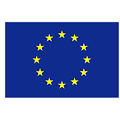NEWCLIM SUMMER SCHOOL 2025
Wine Campus Neustadt becomes the center of an international project to combat the effects of climate change in viticulture
As part of the Newclim Summer School, which took place at the Wine Campus Neustadt from 23 to 26 June 2025, 30 Master's students from various European and non-European universities developed strategies and solutions to the question of how viticulture can adapt to the challenges of climate change. Over four days, four student groups worked on site and in an online group and created presentations of results, AI podcasts and short videos in which the strategies and solutions were then shown and shared. The study work focused on viticultural-technical adaptation strategies to extreme weather events, on the fight against pests in line with the objectives of the EU Green Deal, on the introduction strategies of fungus-resistant grape varieties and on coping with the increasing financial risks in viticulture. The four focus topics were addressed using Challenge-Based Learning (CBL). The advantages of CBL lie in the promotion of critical thinking, group work, the combination of theory and practice and motivation through real challenges. The students were supported by international experts in viticulture and tutors from the field of education. Excursions to wineries were used to illustrate the impact of climate change in the vineyard.
On the last day of the Summer School, the students presented the strategies and solutions developed in the four focus groups to a broad audience from politics, science and practice. Following the students' presentations, a panel of experts took up the content and discussed the individual points. The panel consisted of Christine Schneider (Member of the European Parliament), various wineries, the JKI Siebeldingen, various professors and the Freytag Vine Nursery. During the panel discussion, Ms. Christine Schneider spoke out in favour of promoting fungus-resistant grape varieties: "Planting Piwis involves a certain amount of risk. Ultimately, it is the consumer who decides what to buy. Politics cannot influence the consumer. What politics can do, however, is provide financial support for winegrowers and promote a positive image of Piwis. Young winegrowers should actually plant the new grape varieties so that consumers can be convinced in the long term." Schneider also appealed to the students: "I am aware that the reduction of pesticides and the establishment of Piwis will create a bureaucratic burden for winemakers. Germany wants its individual agricultural rules and laws and at the same time has to meet European requirements. This automatically means more bureaucracy. Tell me about specific problems and challenges from your professional practice. Tell me about concrete solutions instead of focusing on increasing bureaucracy."
The Wine Campus Neustadt stands for the combination of research and practice. Innovative forms of teaching and the expansion of international relations are among the strategic goals in the development of the Neustadt Wine University. "I am really convinced by the Newclim teaching project. Now more than ever, we need to ask ourselves how we can adapt our permanent crops to the effects of climate change. Through Newclim, we are bringing together students from four different countries and promoting professional exchange. Learning is much more effective when different perspectives meet a real problem and intercultural synergies are created than when students simply collect facts from the Internet and textbooks. The students quickly grew together despite their cultural differences. After the official program, everyone met in the evening and exchanged ideas in a relaxed atmosphere. I am proud to have been the host for the Newclim Summer School 2025," summarizes Prof. Dr. Jochen Bogs. With the help of research assistants Karin Franzen and Louisa Fruth, Bogs is responsible for the project on the German side.
About Newclim
The main aim of Newclim is to develop innovative forms of teaching and digital platforms with open source educational materials on climate change and sustainable production in viticulture and fruit growing. Newclim is an EU cooperation project funded by Erasmus+, involving three European universities and an associated partner from Chile. The project thus contributes to improving cooperation within and outside the EU. The project runs from 2023 to 2026 and the Swedish University of Agricultural Sciences (SLU) has already hosted its first summer school in summer 2024. A third summer school will be held at L'Institut Agro Montpellier in France in 2026.
More information can be found on the project website: www.newclim.eu


